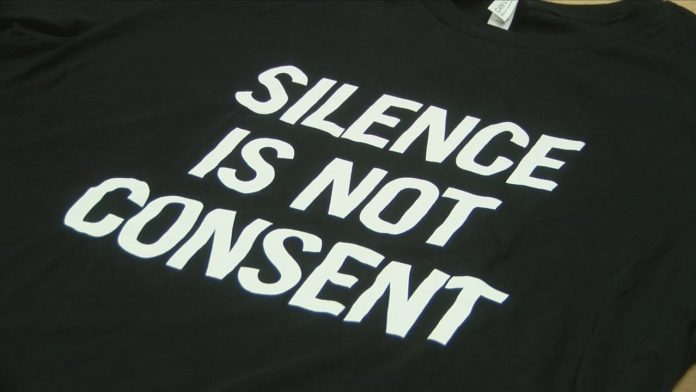This article is written by Sarthak Kulshrestha, a student of Jagran Lakecity University, Bhopal. This article deals with the right of the accused to remain silent during a criminal investigation and the process of the polygraph tests. This article has also cited several case laws referred to in Virendra Singh v. State of Karnataka and issues involved in it.
Table of Contents
Introduction
In the case of Virendra Khanna v. State of Karnataka (2020), it was held that the mere silence of the accused on administering a polygraph test does not amount to his consent for the same. The consent of the accused has to be categorical and clear enough to indicate his willingness to administer the polygraph test on him. Silence cannot be regarded as his consent because it is ambiguous and the investigating authorities need to ensure the explicit consent of the accused of the same. This article further analyses the issues regarding investigation procedures raised in this case and the rights of the accused against such a compulsive test concerning the Virendra Singh case.
Insight on the polygraph test
A polygraph test is usually used in the process of criminal investigations. It is also called a lie detector test. It is a technical and mechanized test consisting of six wires or sensors which are attached to the person’s body. A whole series of questions are asked to the accused which is related to the main subject so that some vital information can be extracted out of the accused. This test observes and records the physical reactions of the accused to the questions that have been asked to him during the conduct of the test. Generally, when a person lies, his heart rate increases, he begins to sweat and his body reacts in a certain manner involuntarily. Before conducting the actual polygraph test, a small session called “pretext interview” is carried out in which the examiner explains the process of the original test and also reviews the questions which are to be asked.
When the test is being conducted on an accused, a lawyer is allowed to be present during the “pretext review” phase. During the actual test, the examiner, called forensic psychophysiologist, asks some irrelevant questions such as “what is your name?”, “how are you?”, etc. along with the questions relevant to the main subject for which the test is conducted.
Mere silence does not amount to consent
Virendra Singh, the petitioner, in this particular case was asked by the police to provide his mobile phone password to unlock the phone and access the two email accounts belonging to him. Following the remand of Virendra Singh, the second respondent applied to a special court for an order of permission to conduct the polygraph test of the petitioner. This application was filed by the second respondent because allegedly the petitioner did not provide the access to his mobile password and his email. However, the same has been denied by the petitioner’s counsel and claimed that he maintained full cooperation with the police in the investigation process.
The application to subject the petitioner to a polygraph test was questioned by the petitioner’s counsel as its copy was not provided to him. Moreover, it was contended that the petitioner or his counsel was not given any opportunity to defend the application. The order permitting the polygraph test was passed by the Court without the knowledge of the petitioner and apparently, he did not provide his consent for the same. The order was passed behind the back of the petitioner. He was silent on submitting himself to such a test and it does not mean that he consented to it as he never affirmed clearly that he is willing to subject himself to such a test.
How to prove the above statement
Silence does not amount to consent because the person so concerned has remained silent on the part for which he has been asked to provide his consent. He has not made any affirmative statement that would indicate his consent for the same. In the given case, the Court said that an accused person neither accepting nor rejecting the administration of the test will not have consented to it. In Selvi v. State of Karnataka (2010), it was said by the Court that in any case, compulsory administration of such impugned tests prevents the subject’s right to choose between remaining silent and offering substantive information. The power of using one’s own will becomes irrelevant when the subject is compelled to convey personal information irrespective of his own will.
Related case laws
The Karnataka High Court referred to several case laws while deciding the present case. The petitioner’s counsel contended that the second respondent filed the application to subject the petitioner for a polygraph test without obtaining his consent and it amounts to testimonial compulsion as held by the Hon’ble Supreme Court in the case of Selvi v. State of Karnataka (2010). This was taken into consideration that subjecting the accused to a polygraph test is violative of his fundamental right, “right against self-incrimination” under Article 20(3) of the Constitution of India. The decision of the same case was recently approved by the Supreme Court in Tofan Singh v. State of Tamil Nadu (2020).
The principles of Selvi’s case were reiterated in Justice K.S. Puttaswamy v. Union of India (2017) and indicates the violation of the “right to privacy” which is a fundamental right. The polygraph test measures the physical responses and their measurement becomes the means of transmission of personal information and that knowledge can be used against the subject of the test himself in order to prosecute him.
To substantiate the element of the right to privacy in the present case, the Court also mentioned the Maneka Gandhi v. Union of India (1978) case which held that a law is necessary to safeguard the right to privacy, even of an accused.
The right to remain silent has been supported by relying on the judgment of the Supreme Court of the U.S.A in the case of Miranda v. Arizona (1966). In the above-stated case, the Supreme Court of the U.S.A said that the right to remain silent by the accused must be respected by the authorities during the investigation when he wants to. And in the present case, the same was not respected and the application of a polygraph test was filed without the knowledge of the petitioner. The court also cited the apex court’s judgment of Nandini Sathpathy v. P.L. Danis (1978), which declared that the continuous insistence made by the police to the petitioner for providing the password of his mobile phone is contrary to his right to remain silent.
As per the famous judgment of State of Bombay v. Kathi Kalu Oghad (1961), witnessing was defined as imparting some information related to the main subject either in oral or written form by a person who communicates the same to the investigating authorities.
In the same judgment, the 11-judges bench held that providing a thumb impression and other biometric details, or access to mobile phone passwords and email accounts for identification would not amount to testimonial compulsion. It would be used by the investigating officer as a mere evidence source only.
Background of the case
The petitioner, Virendra Khanna was living in Bengaluru and worked as an event organizer. As per the facts of the case, on Sept. 03, 2020. He was in Delhi with his family and CCB police came to his residence in Delhi and arrested him in a drug case of 2018 fixed in Banaswadi police station that was punishable under Sec.21(c) of NDPS Act, 1985 and Sec.14 of Foreigner’s Act.
He was brought to Bengaluru for interrogation and was produced before the City Civil & Sessions Judge and Special Judge for NDPS cases. Allegedly, when the second respondent police brought him to Bengaluru, his mobile phone along with the SIM card was seized on Sept. 04, 2020. The petitioner claimed that he cooperated with the police in the investigation but still the prosecution falsely alleged that he refused to cooperate and to unlock his mobile phone and on Sept.16, 2020, the petitioner was remanded to judicial custody.
On Sept. 23, 2020, the second respondent filed the application to subject the petitioner to a polygraph test before the Special Court without the knowledge of the petitioner or his counsel.
On Oct.03, 2020, the petitioner’s counsel filed an application to recall the order of polygraph test as their consent was not obtained and it was passed without their knowledge. This application was put before the court on Oct.05, 2020, and on Oct.15, 2020, the Special Court rejected the recall application dated Oct.05, 2020.
Thus, the petitioner sought the issuance of a writ of Certiorari under Article 226 and Article 227 of the Constitution of India to quash the order of the Special Court of Bengaluru dated Sept.14, 2020, & Sept. 23, 2020.
Issues involved
Based on the arguments put forth, the main issues involved in the present case are as follows:
- Can an accused be directed to furnish the password or biometrics to access his/her mobile phone?
The investigating officer can of course direct or request the accused to provide the password or any identifiable biometric for investigation as required.
- Can a suo motu order be issued by the court itself to the accused to furnish his password or biometrics?
The court by itself cannot issue a suo motu order to the accused to furnish the password or biometrics because the court does not form part of the investigation process in our country. Thus, the issuance of suo motu order by the court cannot take place.
- In a situation where the accused is not providing the password or biometrics, what legal remedy can the investigation officer exercise?
In such a situation, the investigation officer can approach the court in order to issue a search warrant for the mobile phone or any other device.
- Would the accused be found guilty if the required data is gathered from his mobile phone/device?
No, if the data is gathered from the mobile phone or any other device belonging to the accused, it does not mean that he is ipso facto guilty of the crime.
- Would furnishing the password and other details amount to testimonial compulsion or self-incrimination?
The judge addressed this issue by negating it as he opined that this does not amount to any testimonial compulsion or self-incrimination. The mere presence of a concerned document or file in the mobile phone of the accused doesn’t prove his guilt and the accused would be given an opportunity to prove himself.
- Would furnishing the password or giving access to email accounts violate the right to privacy of the accused?
The court has clearly stated that the use of personal and confidential data by the investigation officer during the course of the investigation, does not amount to a violation of the right to privacy and would come within the exception of Justice K.S. Puttaswamy v. UoI case. However, the responsibility of protecting such information in secrecy would be borne by the investigating officer only.
Court’s observation
The court observed that in light of the cases referred to in the judgment, the validity of such a compulsive polygraph test cannot be justified as to when the consent of the accused has not been obtained.
The judge is of the view that when the accused has not consented then no such test can be administered and even if it is administered, the result need not be considered by the court. Also, the examination of the mobile phone and data contained in it is subject to the search warrant and cannot be done without issuing the same. Proper procedures and processes have to be undertaken to maintain the authenticity of the investigation, the judge said.
Judgment
The judgment encapsulated the guidelines for search and seizure of mobile phones and other electronic equipment belonging to the accused and also discussed the technical outlines as under the IT Act, 2000 relevant to the matter of the present case.
Holding Selvi’s judgment of the Hon’ble Supreme Court as categorical, the judge allowed the petition partly. It set aside the order of the trial court dated Sept.14, 2020, which directed the petitioner to furnish the password of mobile phone and access to email accounts.
Secondly, the order directing the petitioner to administer a compulsive polygraph test without his consent dated Sept.23, 2020, was set aside. It also ceased the survival of the order rejecting the recalling application which was submitted by the petitioner’s counsel. Lastly, it also ordered the parties to bear their respective costs.
Analysis
Justice Govindaraj relied upon Selvi’s judgment of 2010 to substantiate the importance of consent of the accused before making him subject to such a test. It also talked about the right of the accused to remain silent during an investigation. Silence actually does not amount to consent as authenticated by some case laws cited above in the article.
The Karnataka High Court also added that the consent of the accused has to be obtained in written form and that too after letting him know the effect and impact of the test as its consequences. So from a critical point of view, it can be proved that mere silence does not amount to consent as it lacks clarity and element of knowledge of the consequences which the accused may have to face after the test,
Conclusion
The polygraph test, being in practice in criminal investigation, has to be conducted properly by the investigating authorities ensuring no transgression of any of the fundamental rights of the accused. The present judgment safeguarded the rights of the accused by considering the fact that his consent was not obtained.
Taking the right against self-incrimination, right to privacy, etc. Justice Govindaraj set aside the trial court’s order which did not bother to protect the rights of the petitioner. The proper procedure was laid down as to how the search and seizure are to be conducted to examine the electronic equipment of the accused and use the data extracted from it.
Relying on the above-cited case laws, the court held that the entire investigation has to be based on proper procedure and mere silence does not amount to consent. And with these observations, the court set aside the orders of the trial court.
References
- https://indiankanoon.org/doc/87379349/
- https://www.google.co.in/amp/s/www.newindianexpress.com/states/karnataka/2021/mar/13/relief-for-virendra-khanna-hc-sets-aside-orders-passed-by-special-court-2275934.amp
- https://indiankanoon.org/doc/338008/
Students of Lawsikho courses regularly produce writing assignments and work on practical exercises as a part of their coursework and develop themselves in real-life practical skills.
LawSikho has created a telegram group for exchanging legal knowledge, referrals, and various opportunities. You can click on this link and join:
https://t.me/joinchat/J_0YrBa4IBSHdpuTfQO_sA
Follow us on Instagram and subscribe to our YouTube channel for more amazing legal content.
 Serato DJ Crack 2025Serato DJ PRO Crack
Serato DJ Crack 2025Serato DJ PRO Crack









 Allow notifications
Allow notifications


